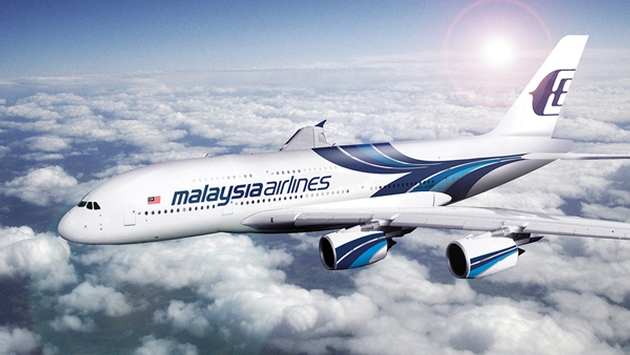Will Rebranding Save Malaysia Airlines?

In the wake of two tragedies within four months involving the carrier – the disappearance of Flight MH370 in March, which is still missing, and the shooting down of Flight MH17 earlier this month – a name change is one of the options on the table for the beleaguered airline, which was already in financial straits long before this year.
In an interview in London’s Sunday Telegraph, Malaysia Airlines Commercial Director Hugh Dunleavy said a review of the carrier is being conducted by the Malaysian government, which owns nearly 70 percent of the airline through an investment firm.
“Our majority shareholder, the Malaysian government, has already started a process of assessing the future shape of our business and that process will now be speeded up as a result of MH17,” Dunleavy said. “There are several options on the table but all involve creating an airline fit for purpose in what is a new era for us, and other airlines.”
But does rebranding work?
Here are five case studies that did, and five that didn’t.
Five that worked
1) VALUJET/AIRTRAN – This is obviously most comparable to the Malaysia Airlines situation. It not only involved rebranding but getting another airline involved – something Malaysia probably would love to have happen. After a ValuJet plane crashed in the Florida Everglades in 1997, killing all 110 on board, the carrier was roundly criticized when it was alleged the company trimmed costs on maintenance. ValuJet merged with the parent company that owned AirTran Airways and took that name; in 2010, Southwest Airlines bought AirTran for $1.4 billion.
2) ANDERSEN CONSULTING/ACCENTURE – This rebranding and name change was absolutely prescient. Andersen Consulting was a subsidiary of what was, at the time, one of the Big Four accounting firms, Arthur Andersen. But Andersen Consulting did so well it asked to buy itself out from Arthur Andersen and go independent. That was in 2000, and the company changed its name to Accenture. Arthur Andersen? Barely operating any more as a result of its involvement in the Enron accounting scandal.
3) RELATIONAL SOFTWARE/ORACLE – Even at its onset in the 1970s, who would want a name like Relational Software? Obviously Larry Ellison didn’t and changed the name to Oracle Systems in 1982 and just to simply Oracle in 1995.
4) McDONALD’S – Didn’t change its name; it changed its image. In the wake of the 2004 documentary “Super Size Me,” a harsh look at the fast food industry and McDonald’s in particular, the company dropped its Supersize menu, added more fresh foods and nutrition-friendly items, and changed its slogan to “I’m Lovin’ It.”
5) DATSUN/NISSAN – The Japanese carmaker had long been Nissan throughout the world but not in the United States. In America, it was known as Datsun – c’mon, who doesn’t remember the totally cool Datsun 280ZX? – for one big reason. The Japanese brand Nissan had been a manufacturer of supplies for its country during World War II and feared a backlash in America. As Datsuns became more and more popular in the U.S. and any potential resentment faded, the company phased out the Datsun name and became one brand in Nissan.
Five that didn’t work:
1) COCA-COLA/NEW COKE – Enough said. One of the biggest disasters of all time.
2) TROPICANA/TROPICANA – When you think of Tropicana orange juice, what comes to mind? The iconic orange with the straw going through it, as if you could drink and taste the goodness of the juice right out of the fruit itself. Then in 2009 the company introduced its new carton featuring what looked like a glass of orange juice. When sales dropped 20 percent, it went back to the iconic straw in the orange.
3) SCIFI/SYFY – Ugh. When folks at the popular niche television channel realized they couldn’t trademark ‘SciFi’, they decided to rebrand the network at SyFy. That was in 2009. You’ll still find fans with disdain for the name change.
4) PHILIP MORRIS/ALTRIA GROUP – The cigarette maker changed its name in 2003 after a barrage of negative publicity against Big Tobacco. Didn’t work.
5) OVERSTOCK.COM/O.CO – The giant internet retailer had built a great brand as a site that offered overstocked items at discount prices. Nobody knew what the heck O.Co was when it changed names in 2011. People did, however, know what Overstock.com was when the company changed back just three months later.
Source: Travel Pulse, http://www.travelpulse.com/news/airlines/will-rebranding-save-malaysia-airlines.html













